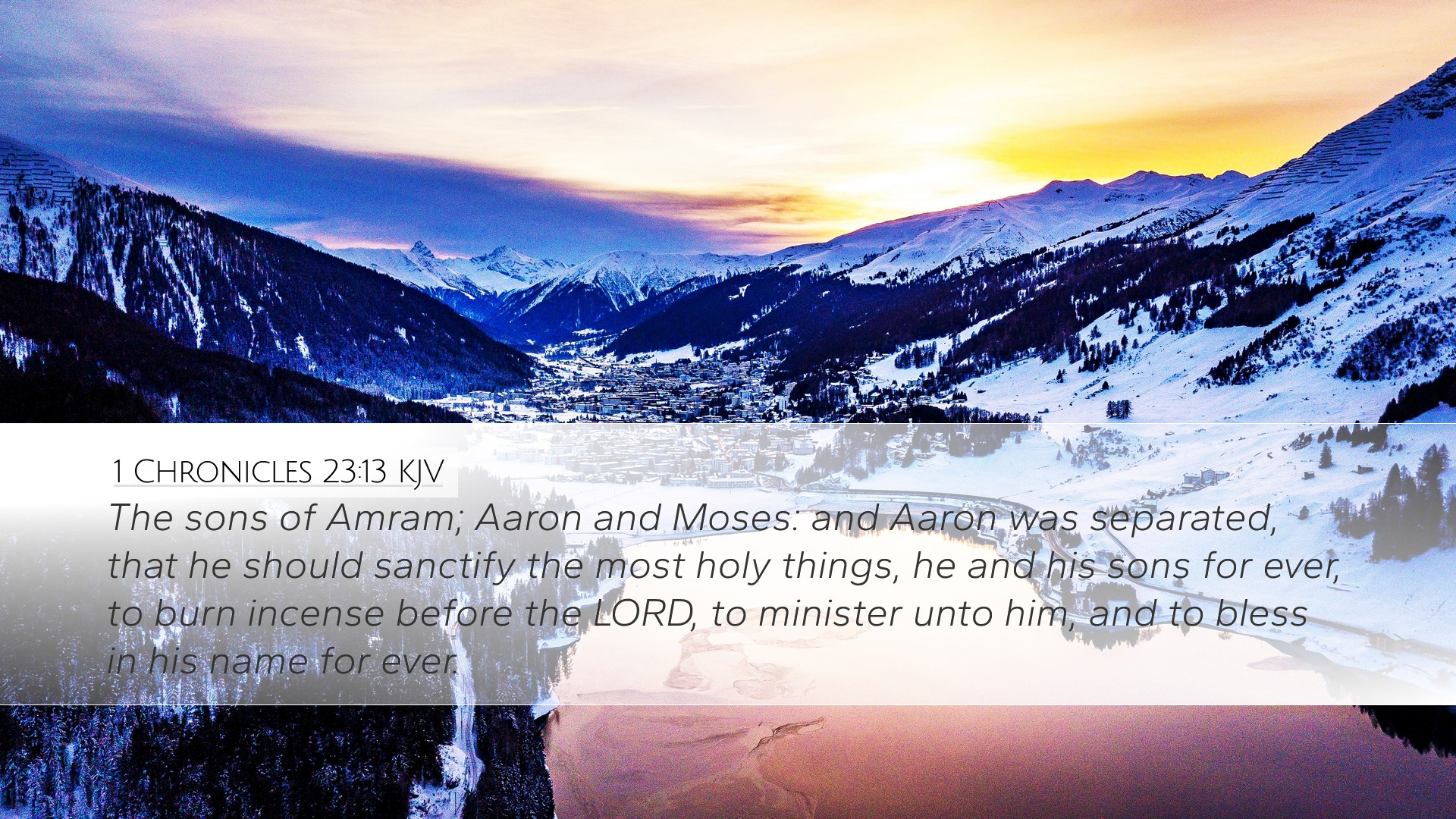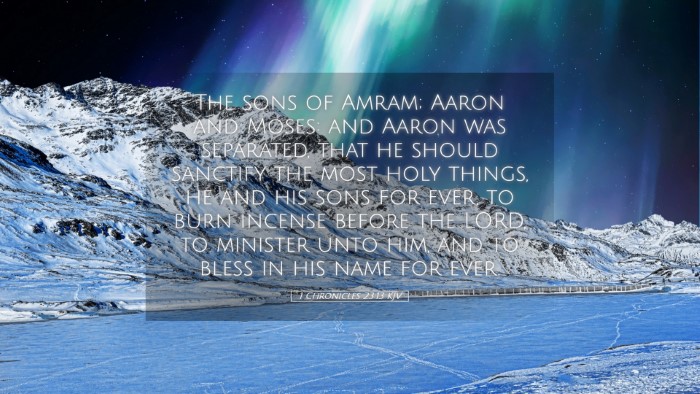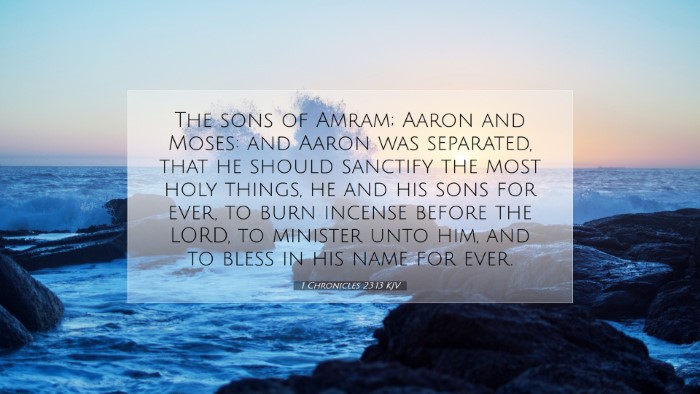Commentary on 1 Chronicles 23:13
Verse Reference: 1 Chronicles 23:13 (KJV) - "The sons of Amram; Aaron and Moses: and Aaron was separated, that he should sanctify the most holy things, he and his sons for ever, to burn incense before the Lord, to minister unto him, and to bless in his name for ever."
Introduction
This verse draws attention to the significant roles of Aaron and Moses as leaders and priests within the Israelite community. Their designation for sacred duties underscores the importance of holiness in worship and service to God. In understanding this verse, we delve into the responsibilities assigned to Aaron and his lineage, reflecting on the theological implications for the priesthood and communal worship.
The Dual Legacy of Aaron and Moses
1. Aaron's Unique Separation: According to Matthew Henry, Aaron’s separation represents the distinct calling of the priestly lineage, emphasizing that not only is he to serve God, but he is also to serve the people. Aaron was God's chosen vessel for the ministry of reconciliation through sanctification of the holy things, indicating a divine intention rooted in grace.
2. A Legacy of Leadership: Albert Barnes notes that both Aaron and Moses function in profound leadership capacities, shaping Israel's spiritual identity. Moses as the lawgiver brings forth God's commandments, while Aaron embodies the mediating role found within the priesthood. Together, they represent a continuum of faith that binds the people to God's covenant.
The Role of the Priesthood
The priesthood established in Aaron's family forms a foundational aspect of Israel's worship. Adam Clarke emphasizes the priest's role as not merely religious but also communal, as they "bless in his name forever." This reflects back to the responsibility priests have to intercede and invoke God’s blessings upon the congregation.
Sanctification and Service
1. Holiness in Worship: The phrase "sanctify the most holy things" delineates the key role of the priests in maintaining a sacred space and ensuring that God’s holiness is revered among His people. As Henry explains, true worship calls for preparation and holiness, highlighting the importance of a sanctified life as a prerequisite for effective ministry.
2. Incense and Prayer: The act of burning incense is intertwined with intercession—a physical manifestation of prayer ascending before God. Barnes draws a correlation between this ritual and the prayers of believers today, suggesting that just as Aaron ministered to God on behalf of the people, Christians are called to uphold a life of prayer and intercession for those around them.
Implications for Modern Believers
The implications of this passage reach beyond the historical context to influence contemporary faith conduct among believers. The dedication of Aaron and his descendants invites a reflective consideration of various themes.
1. Understanding Sacred Roles
Today's church has a dual calling: akin to Aaron's descendants, believers are called to be both a royal priesthood and a community of worshippers. Clarke elucidates that this dual role necessitates a commitment to sanctification and holiness.
2. The Continuity of Blessing
The apostolic blessing in the New Testament encapsulates the spirit of Aaron's role. Through Christ, believers inherit a new priestly call, with the privilege to bless and be blessed. Henry argues that each blessing we extend should reflect God’s grace, upheld by a life set apart for His glory.
3. A Call to Faithfulness
The fidelity of Aaron and his sons demonstrates a pattern of faithfulness that is not only commendable but essential for ministry. Barnes invites modern ministers to learn from their commitment, as faithfulness in small and great things amplifies God’s truth in the world.
Conclusion
1 Chronicles 23:13 serves as a poignant reminder of the significance of the priesthood and the sanctity of worship. Through Aaron's separation for holy duties, we see a type of Christ who fulfills the ultimate mediation. This verse invites us into a deeper understanding of God's call for holiness, service, and faithful leadership within our church communities.
Reflection Questions
- How can today's church more effectively parallel Aaron's commitment to sanctification and holiness?
- In what ways do our communal worship practices reflect the priestly duty described in this verse?
- What steps can we take to fulfill our calling as a royal priesthood in our daily lives?


